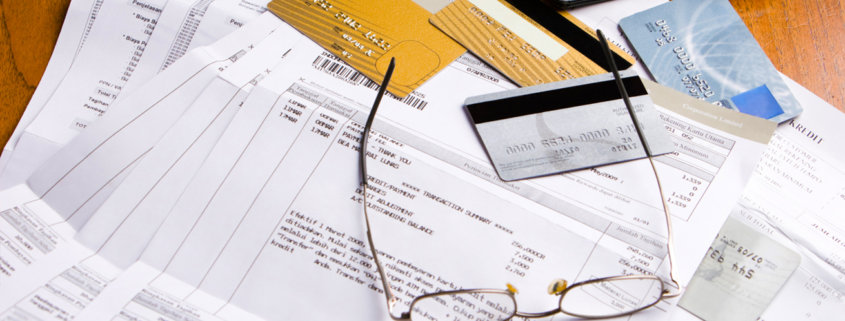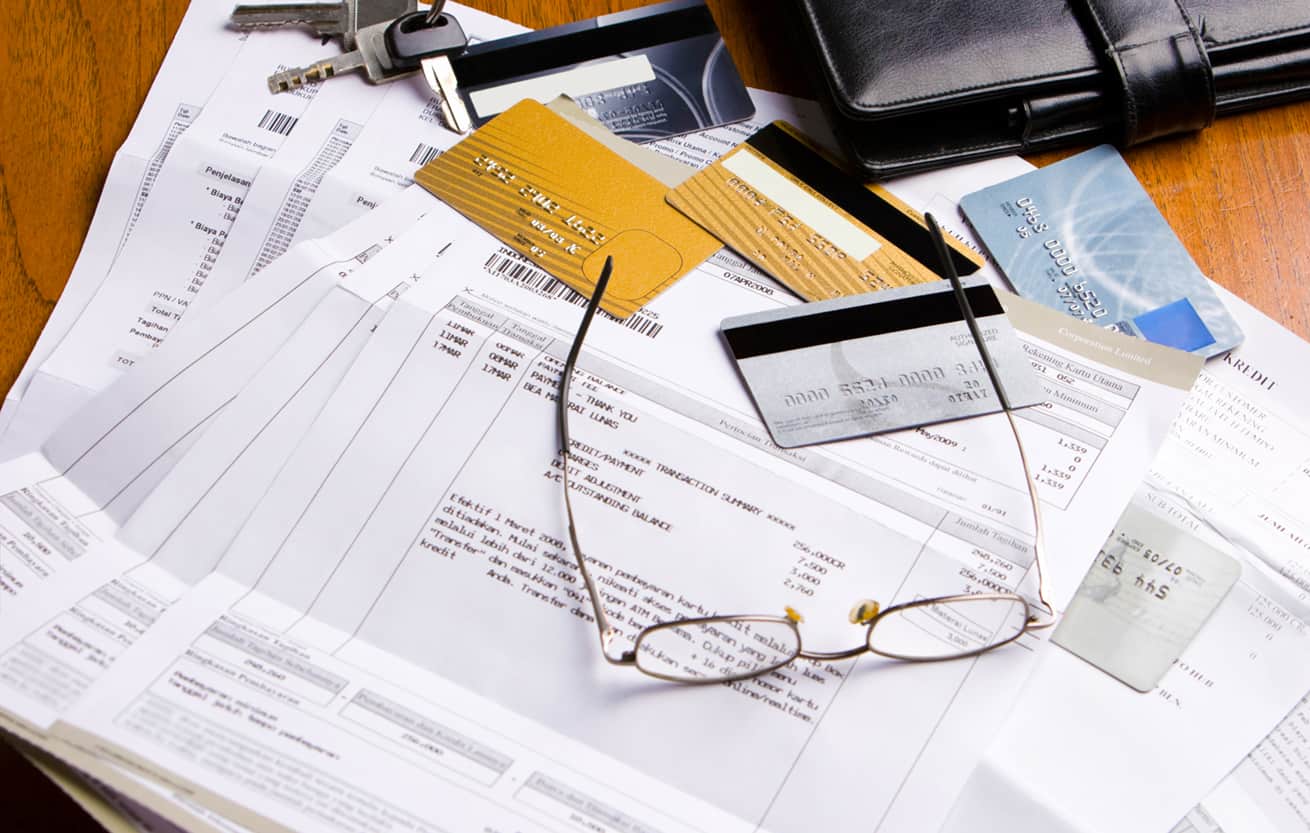You Overspent on Christmas—3 Ways to Bounce Back
What went wrong? Put your mind on rewind and go back a few months. How come you overspent so much? Did you run out of cash before you got to the end of your list, so you started charging? Did you feel pressured to make sure the kids weren’t disappointed? Perhaps you didn’t anticipate expenses beyond buying gifts—things like extra food for entertaining, tickets to the pageant, travel to your in-laws’…and on it goes.
Now what?
Write down all of these questions, then answer them thoughtfully and honestly. Seeing your answers in writing will bring the kind of clarity that’s necessary to fix the problem.
Let’s say at the last minute, you charged new iPads for your kids and now you’re kicking yourself. If you keep kicking, you may never know why you did it. But if you stop long enough to ask, “Why did I buy expensive electronics for the kids when I couldn’t afford them?”, seeing your answer (“I wanted them to think I was the world’s greatest dad and make this a Christmas they’d never forget”) can give you perspective and help you think of other ways you could have made the holiday memorable without piling on more debt.
Now, take a deep breath and write down the amount you overspent. Don’t hide—just face up to it and decide right now that you will do what you must to repay it.
3 Ways to Bounce Back
Clearly, the only way to put the situation right is to repay the money. And there are a number of ways you can do that. Choose the one that you can live with.
1. Quick and Easy
While aggressive, this is your best option: You’ll pay the lowest interest and the problem will be history long before next Christmas. In this scenario, you’ll repay the total amount in three months. Let’s say your debt is $1,000. To eliminate it in three months at 16.99% interest, it will take three payments of $345 (total payback with interest, $1,028).
I you didn’t have enough money to pay for Christmas in full, you may not have enough for this aggrfessive fix. However, icncf you’re serious, there are things you can do to make it happen.
Declare a spending freeze
Start now and follow through until the money is repaid. That means no unnecessary spending of any kind. None. You may even want to freeze your credit cards (I’m serious about this!) in a block of ice in your freezer. That way you can’t get to them and continue to rack up debt. (Don’t worry. The chip/strip will be just fine.) Too tough? Not when you know this is just for three months or until you reach your goal.
Sell things
Take advantage of eBay or Craigslist. Look around and assess all the stuff in your home. Liquidating some of it could benefit you in two ways: raising cash and simplifying your life.
Search for unclaimed funds
This may sound too good to be true, but somewhere you may have unclaimed cash (also referred to as unclaimed property). These funds can be in the form of forgotten checking or savings accounts, undeliverable tax refunds and insurance payments, or leftover credits from mortgage payoffs or utility services.
Every state holds millions of dollars in unclaimed funds just waiting for the owners to speak up. Google “unclaimed funds” plus your state or province to search online.
Be sure to check every state or provice where you’ve lived, under your current, maiden, and other names you have used in the past. You can search for your family members, too.
Earn more
Of course earn more if you can pick up overtime, extra shifts, or even a temporary weekend job. Determine you will apply every extra dollar earned to your quickly repaying your debt. You’ll have time to relax once the debt is repaid.
2. Slow and Steady
In this scenario, you’ll repay the amount you overspent in six months, so the problem will be fixed by fall. This method, however, will cost you more in the long run—smaller installments mean you’ll pay more interest. In my example, $1,000 at 16.99% will pay off in six segments of $195 each (total payback, $1,046). To do this, consider the following:
Pick your sacrifice
Look seriously at your regular spending. You may not be ready to do a complete spending freeze, but you must cut back on eating out, buying little extras for the kids, manicures, drive-thru coffee, and all other nonessential spending. Come up with several ways to sacrifice for six months, then divert that money to paying Christmas debt.
Save on groceries
Make a pledge to buy only sale items. This is such a simple way to lop off at least 30% from your grocery tab. You’ll have to give up brand loyalty, but you won’t starve. Supermarkets have items on sale in every area of the store, every week. Just be sure to take what you didn’t spent on groceries and use it to pay down your debt.
Caution: You risk becoming complacent by spreading your payback over six months. The temptation will be to push it to seven months, then a year…and before you know it, you will have moved into the next category.
3. Long and Painful
This is your worst nightmare. In this scenario you decide that you’ve already put that additional $1,000 on your credit card and decide to just live with it, making minimum monthly payments. I hope you’re sitting down.
At 16.99% interest, a $10 minimum payment, and typical credit card terms, you’ll still be paying for your mistake in 2033. I’m not kidding! It will take you nine and a half years to pay back $1,000—and it will cost you $717 in interest on top of the money you overspent.
The payback will still be going on next Christmas, and the next, and every Christmas for the next decade.
Above all, prevention
While paying back the money as quickly as possible is essential, it’s even more vital that you take steps right now to prevent this from happening again. Once you know why you overspent, ask yourself what you should have done differently. Here are some excellent ideas.
Start earlier
I know from personal experience that procrastination is not my friend. The longer I wait, the greater the sense of urgency (also known as panic) and the more I’ll spend. An easy way to start earlier is to designate a closet or other place for gifts. This tunes you in to looking for sales or special items throughout the year.
Now that you have a place to put everything, want to get even more strategic? Divide your Christmas list by 11, and determine whether to purchase or make that number of gifts each month.
Stick to a budget
This is a lot easier if you approach Christmas with cash—no plastic allowed. Forget fancy budgeting software or complicated spreadsheets. Instead, grab a stack of envelopes. Write a name (Sally) or item (Christmas tree) or event (concert) on the front. Add the dollar figure you intend to spend. Place that amount of cash in each one. When the envelope is empty, you know you’re done. Keep the receipts in the specific envelope, and you’ll already have a dandy filing system.
Reduce the number of gifts Now’s a good time to re-evaluate things. Does everyone on your list need a gift? How many gifts do the kids really need? One idea shared by several readers is to implement the three-gift family plan and make a big deal of it. The idea is that each child receives three gifts, reminiscent of the three gifts the Magi gave to the Christ Child. Or allow kids to ask for only one thing from Santa (it may take them weeks to narrow it down, so announce this early). Now the other two gifts become bonuses, because the kids didn’t even ask for them.
Set up a special account
Remember the old Christmas Clubs at banks? You’d open an account and tell the bank how much you wanted transferred to it from your paycheck each week. Twenty-five dollars a week translated to $1,250 for Christmas shopping. The best part? It was painless. You didn’t miss money you never saw.
These accounts have pretty much disappeared since credit cards became plentiful, but you can create your own. And you should. Go to your bank, open a special account that has no minimum or fees, and fill out an automatic deposit authorization form.
I doubt any of us will reach perfection where we never make any financial mistakes. But I can tell you from my own experience that these mistakes can become fewer and farther between, even during the holidays.
Overspent no more!















If you think losing track of a bank account doesn’t happen to anyone, I can swear that it did to my parents! Mom and Dad moved from Gallup, NM, to Flagstaff, AZ, where I grew up. Many years later, right after my Dad had passed away, mom was faced with a bill that she didn’t have the money for. Then she received a letter from the bank they used in Gallup, telling her that her account was going to be closed (“What account?!”) and the bank would forward the balance in a check to her. It was the exact amount that she owed. The bank had been paying her interest on a small bank account that she’d forgotten about. Maybe Dad had nudged the bankers.